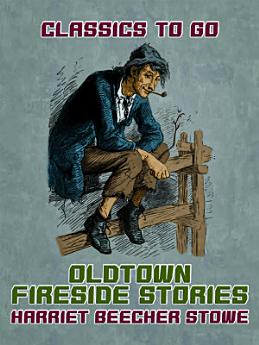Oldtown Fireside Stories
Aug 2021 · Otbebookpublishing
Ebook
71
Pages
family_home
Eligible
info
reportRatings and reviews aren’t verified Learn More
About this ebook
About the author
Harriet Beecher Stowe (1811-1896) was an American author and abolitionist whose literary work and activism left an indelible mark on the 19th century. Born into a prominent family of preachers and reformers, Stowe was deeply influenced by the religious and social justice ethos that permeated her upbringing. Her father, Lyman Beecher, was a renowned Calvinist preacher, and her siblings, including the famous preacher Henry Ward Beecher, were also influential in social reform movements.Stowe's most famous work, "Uncle Tom's Cabin," published in 1852, became a cultural phenomenon and a powerful catalyst for the abolitionist movement. The novel's vivid portrayal of the brutal realities of slavery galvanized public opinion in the North and provoked vehement reactions in the South, contributing to the mounting tensions that led to the Civil War. Abraham Lincoln is famously quoted as saying to Stowe, "So you're the little woman who wrote the book that started this great war."Beyond her literary achievements, Stowe was a pioneering female voice in a male-dominated literary world, advocating for women's rights and social justice. Her works often explored themes of domesticity, motherhood, and the moral responsibilities of individuals in society. Stowe's influence extended to contemporary writers and activists, inspiring figures such as Frederick Douglass and Sojourner Truth.Despite facing significant backlash and controversy, including accusations of exaggeration and sensationalism, Stowe remained steadfast in her commitment to social reform. Her legacy endures as a testament to the power of literature to effect change and challenge societal norms. Harriet Beecher Stowe's life and work continue to resonate, reminding modern readers of the enduring struggle for justice and equality.
Rate this ebook
Tell us what you think.
Reading information
Smartphones and tablets
Install the Google Play Books app for Android and iPad/iPhone. It syncs automatically with your account and allows you to read online or offline wherever you are.
Laptops and computers
You can listen to audiobooks purchased on Google Play using your computer's web browser.
eReaders and other devices
To read on e-ink devices like Kobo eReaders, you'll need to download a file and transfer it to your device. Follow the detailed Help Center instructions to transfer the files to supported eReaders.








